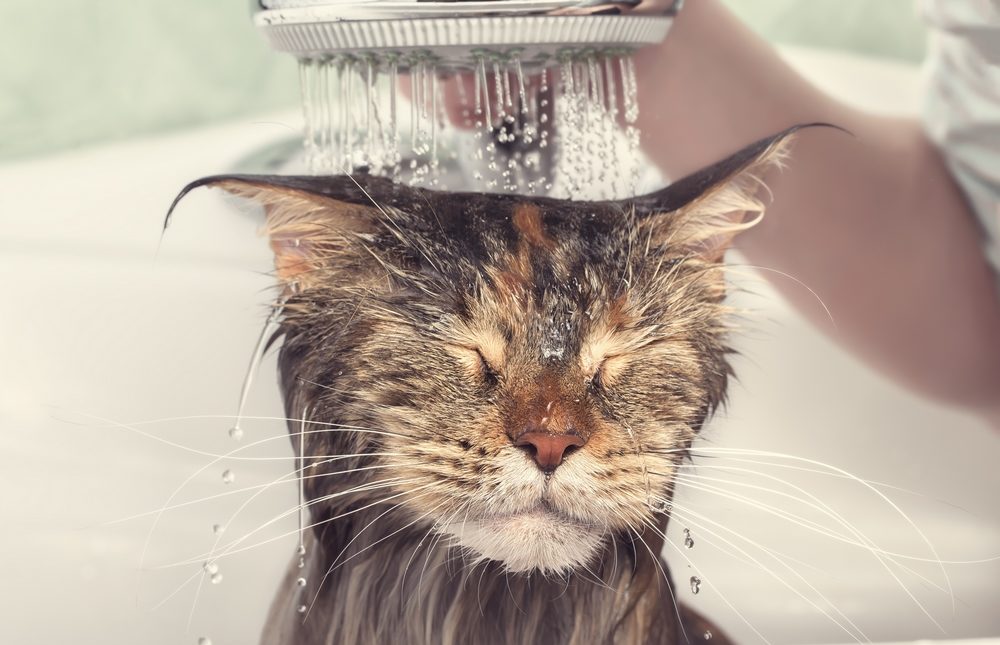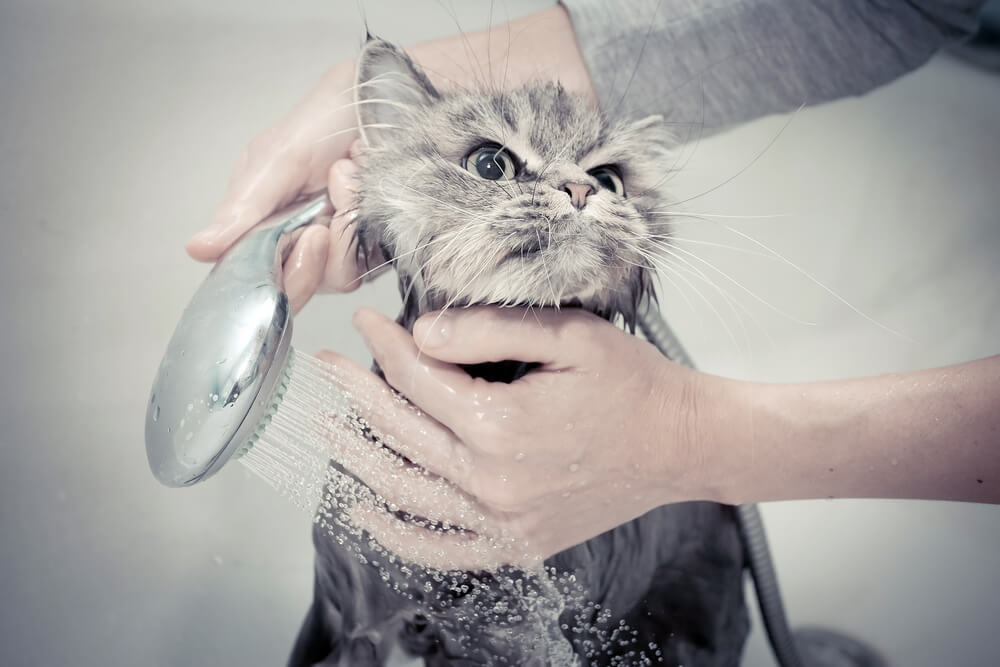
How often do I bathe a cat?
Do I really need to bathe a cat? And if so, is it necessary to do it once a week, everyday, how often? A short and fast answer is: yes, you have to bathe a cat, but in the right circumstances and with the proper products.
20.01.2019 | Totobi
Do I really need to bathe a cat? And if so, is it necessary to do it once a week, everyday, how often? A short and fast answer is: yes, you have to bathe a cat, but in the right circumstances and with the proper products. Many owners think that their cats do not need any help from people, because they spend a lot of time taking care of themselves. But it is not true. The cats brush off the dead hair, tissue and the food remains, massage the hair roots and spread the oils more evenly on the body, by licking themselves with their rugged tongue. The problem is that the dirt and dandruff does not go anywhere, which makes the cat not clean by our standards. People automatically think that cats do not like water and cannot bathe. But if they are used to water from a young age, the baths will not be stressful to them, they will simply became a normal part on their life.
The frequency of bathing a cat depends on their age, comfort levels and their needs.
Little kittens are ought to be bathed regularly every three days, because of their dirt. When they are 12 months old and older, you can bathe them every month and not longer than every three to four months. Our goal is to provide the cat with regular baths so that he sees them as something positive. All cats are individualistic: each one has its temperament. It’s possible that your cat will calmly accept bathing, even if he does not like it at first. Cats that are long-haired, medium-haired and cats that like to spend time outdoors, require more attention than the short-haired and domestic cats, which may require a bath less often. Cats that are very active require more frequent baths because they get dirty quicker and easier. Cats that cannot or do not care for themselves require bathing so that their fur does not become greasy or sticky.
When do cats require bathing?
If the cat’s fur is discolored, oily, or it smells bad despite careful brushing. When they are older or are overweight. An older cat who once was able to stay clean can now find it difficult to spot the right places. As they age, the fur becomes a bit more greasy, which is a natural process, and then cats need more regular baths. Overweight cats are not able to reach every part of their body during their self-care, which means that they need a bath, so that all parts of their body are clean and tidy. The same goes for when your cat is sick. Depending on the nature and severity of the illness, a sick cat may not clean up as thoroughly as he usually does. When they have tangles, dreadlocks or other fur problems. If you notice a matted fur that looks like small miniature dreadlocks on a cat’s coat, you may be tempted to just cut them out. However, this is a temporary solution. Healthy, clean coat is the best way to prevent the coat from tangling. Bathing a cat is also a good way to reduce excessive hair growth and can help prevent the formation of tangles. If your cat has problems with something “sticking” to his back or paws, it is time for a bath. All problems such as skin irritation, ticks or fleas, other insects and loose stool may require more attention during care and more frequent baths. If you are allergic to cat’s fur, you should regularly bathe the cat at least once a week. Bathing your cat can significantly reduce the level of the mites in the air.

The benefits of bathing.
Bathing the cat will make his fur more shiny, better nourished and moisturized. And if you use the natural shampoo and conditioner such as the Totobi shampoos, the cats coat and skin will become healthier, and the dandruff will diminish. If bathing will be accompanied by regular brushing, your cat’s coat will also have no tangles. Bathing the cat in the Totobi Natural Deodorant Shampoo will stop the fleas and other skin parasites. Regular baths will help prevent the formation of flocks that can cause intestinal obstructions, and remove dead hair, improving its quality. Bathing is a great opportunity for carrying out an accurate inspection of the condition of the fur and skin, because when the hair is wet and lying, you can see the things that you otherwise might have overlooked. The changes detected in these inspections should be consulted with the veterinarian as soon as possible. This care has one more advantage: it facilitates the positive bond between you and your cat, it improves the relations, making the contact easier.
author





